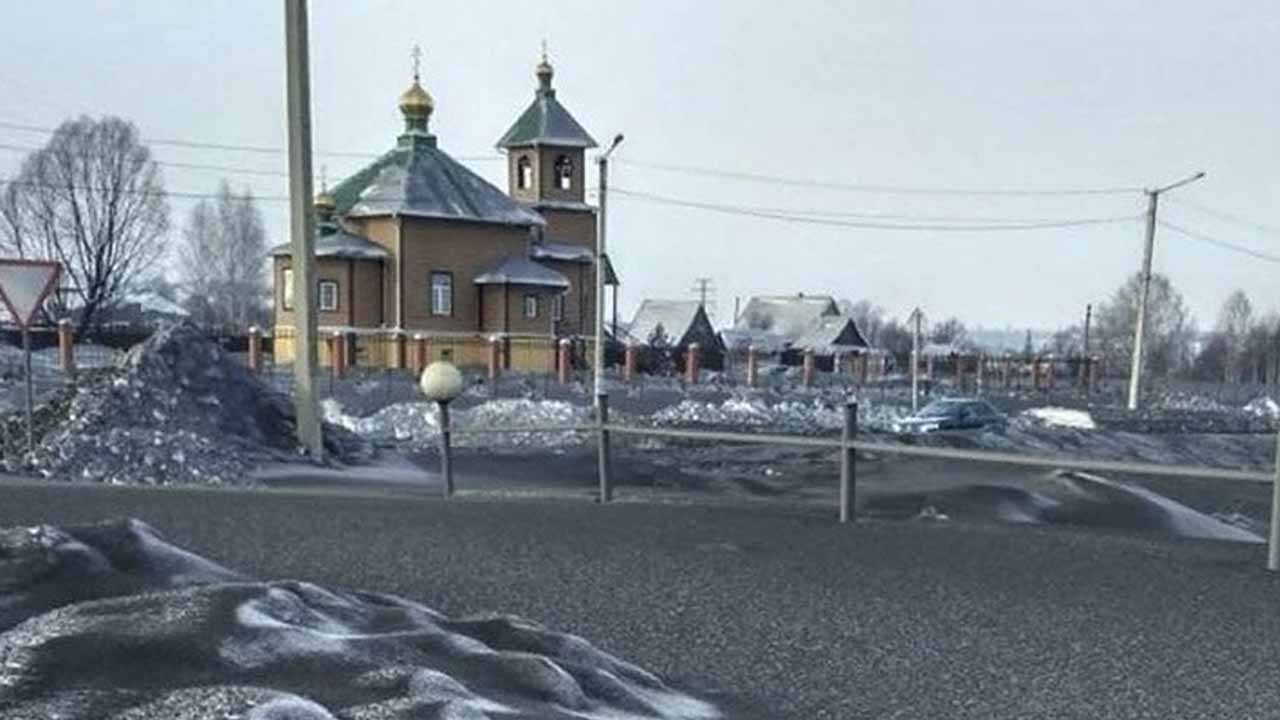A strange black snow covered the cities of Prokopyevsk, Kiselevsk and Leninsk-Kuznetsky, in the Kuzbass area, in Russia. Furthermore, it is important to note that this occurred within the Kemerovo coal mining region of southwestern Siberia. The area is home to a coal-fired hot water plant that provides essential heating for the 4,000 residents, but is also responsible for soot and visceral pollution.
The pictures show the ominous black snow and ice covering the village in one of the world’s coldest inhabited territories, where Stalin sent political prisoners to work in Gulag prison camps.
In 2019, residents of Kiselevsk, after black snow fell, filed a complaint with the International Criminal Court in The Hague about genocide. The Siberians have asked for an independent investigation, alleging the inaction of the authorities against the backdrop of unbearable living conditions in connection with the barbaric coal mining.
Kiselevsk has nine open-pit coal mines and five mining and processing enterprises that often violate environmental laws. This led to an increase in the level of oncological diseases and respiratory diseases, the authors of the appeal claimed. Residents have not relocated from dangerous territories, because they allegedly do not enter the sanitary protection zones of enterprises.
Andrei Panov, the deputy governor of the Kemerovo region, also blames coal boilers, car exhaust and other types of companies for producing this pollutant.
According to the citizens, the controlling and investigating authorities do not find any violations in the actions or inactions of the perpetrators. “These actions are essentially genocide and crimes against humanity,” the Siberians noted.
In addition, residents of Kiselevsk recorded a video message to Canadian Prime Minister Justin Trudeau and UN Secretary-General António Guterres. In it, they also complained about the unbearable environmental situation in the region, the arbitrariness of the coal miners, the inaction of the authorities, and added that they were ready to become refugees in another country. The Canadian authorities responded to the appeal and said that they were ready to accept the residents of Kiselevsk as refugees, subject to certain international conventions.
The city sees temperatures of -50C in the dead of winter, in one of the most inhospitable and remote inhabited places in the world. Residents have complained about pollution since the fall of the Soviet Union.




























